Testing themselves against the elements, four intrepid mums team up with The One Show’s Alex Jones to raise awareness of maternal mental health
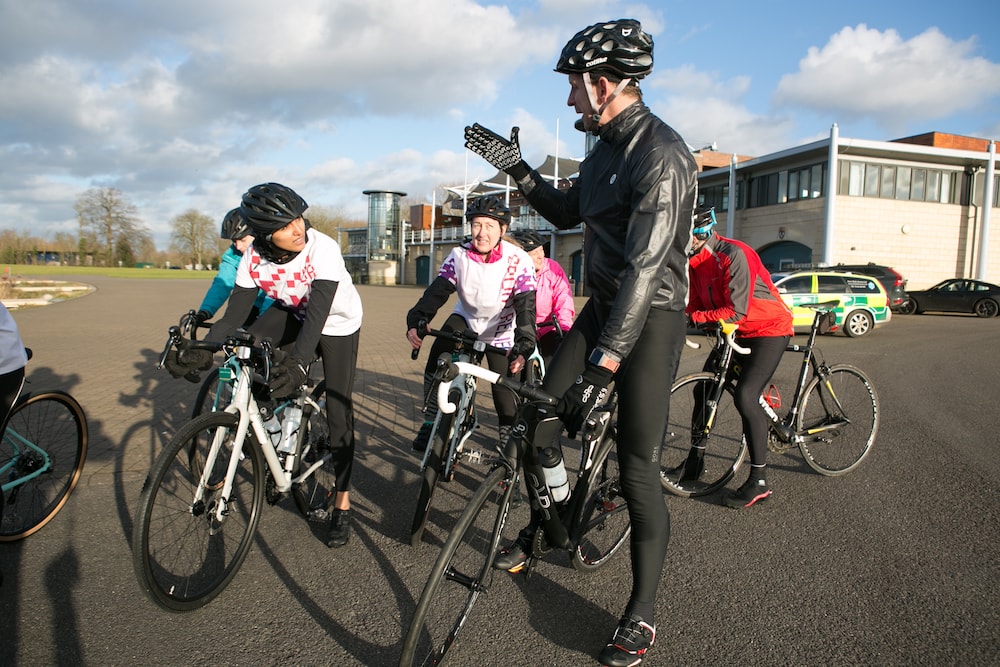
The Mums preapring for the cycle
Sport Relief is returning with a bang, as fundraisers are pushed to their physical limits to raise awareness, particularly of mental health, this year.
Radio 1’s Greg James embarked on an ambitious 500-mile cycling challenge, climbing three of the UK’s highest mountains in just five days in aid of youth mental health. Presenter Zoë Ball is taking up her own cycling-themed challenge as well, saying she’ll have “miles to cover, hills to climb, and a lot of chafing”.
But Happiful's main focus from this year’s fundraising bonanza surrounds the activities of The One Show’s Alex Jones as she teams up with four everyday mums (Amal, Debbie, Jodi and Leigh) to take on a series of epic challenges across the UK.
Since 2002, Sport Relief has raised more than £335 million
They’ll brave running in the rain, cycling up the steepest peaks, walking across rugged terrain, and swimming through open waters as “The Mother of All Challenges for Sport Relief” puts them to the test like never before.
It all unfolds on The One Show from Monday 12 March to Friday 16 March, as the five mums push themselves to breaking point, both raising money for Sport Relief and sharing their own stories of maternal health to help raise awareness of this important issue and the work Sport Relief does to support it.
Alex said: "Tackling [the challenges] as part of a team of mum's makes this the most special thing I've done for Sport Relief. It will push us out of our comfort zones and test us physically, mentally and emotionally. I can't wait to get started."
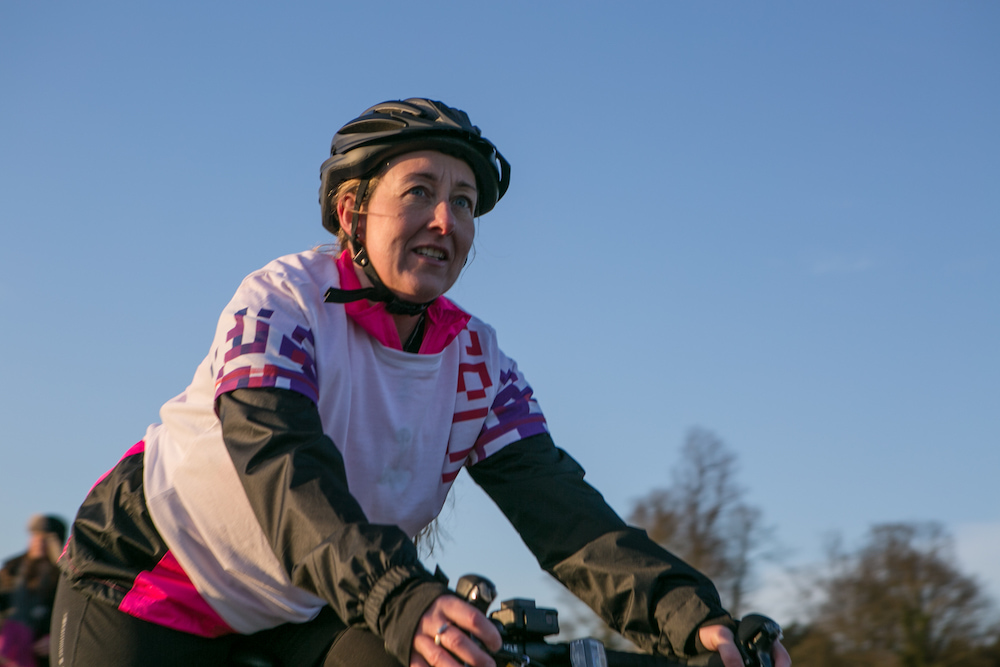
Day One: Sunday 11 March. Starting on Mother’s Day, the team will brave the freezing cold by swimming a section of Scotland’s Loch Ness, which boasts an average temperature of just five degrees Celsius in March.
Day Two: Monday 12 March. Helvellyn via Swirral Edge in the Lake District will be the setting for the second day, as the team face a nerve-racking 870m ascent via a narrow walkway, followed by a tricky 800m descent.
Day Three: Tuesday 13 March. The team will put their endurance to the test by cycling three of the Lake District’s toughest passes. Starting with a climb up Kirkstone Pass, then on to Windermere’s shore, finishing up at Honister Pass and Newlands Pass.
Day Four: Thursday 15 March. It’s then on to Alex’s home country for the mums, who’ll head deep underground to navigate a maze of Welsh caverns to reach Porth Yr Ogof cave in the Brecon Beacons. In normal weather conditions, a dry, rocky river bed leads up to the cave’s main entrance, but following rain this soon becomes a raging torrent, dubbed Afon Mellte (the Lightning River).
Day Five: Friday 16 March. The week climaxes in a marathon finish, tackling a relay run across the hilly Welsh coast. The fearless mums will put their stamina to the test in order to get over the finish line in Swansea.
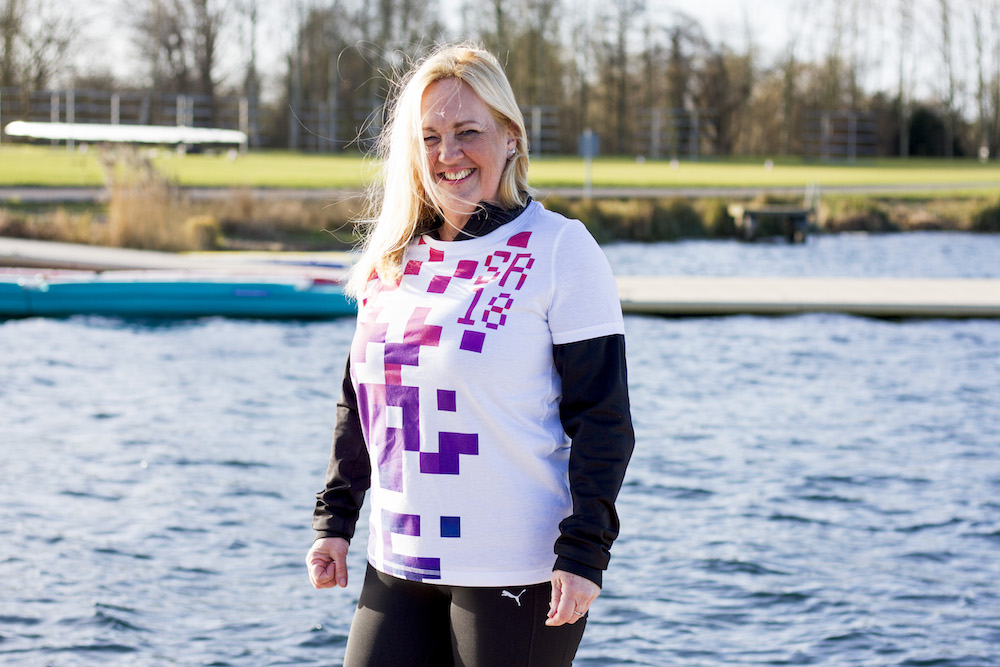
Debbie
After six pregnancies (with fertility drugs used for four of these) and two miscarriages, Debbie experienced a traumatic birth and delivered at 32 weeks.
Three years later, another baby was also born by emergency caesarean, and Debbie felt stuck on a ‘grief curve’. She’s taking part in the challenge to show other women they’re not alone in their fertility struggles.
The grief curve was part of my depression but not all of it; the shock of what happened with the birth of Ellie was a big part – one minute I was fine, then I had a pain like a stitch, and within a few hours I was told I was bleeding internally and that my baby was dying inside me.
She was born by emergency c-section and I had to have blood transfusions. Not knowing if she would be OK, being a mum to my two older girls and being the “strong” one took its toll on me. I felt out of control, incomplete, tired, scared, pessimistic, and had no idea what was happening, so going to a doctor and the subsequent counselling educated me and enabled me to build "me" again.
I’m looking forward to spending time and sharing the experiences with the other mums. For me, the challenge is me putting a full stop on my recovery; life is now good, the kids are growing into wonderful young ladies, I have a wonderful partner and our future looks bright. Doing this challenge is Deb saying I’m back, I’m the best I can be, and look what I can do.
I want to show that your mental health does not define you, and it certainly doesn’t dictate what you can and can’t do with your life.
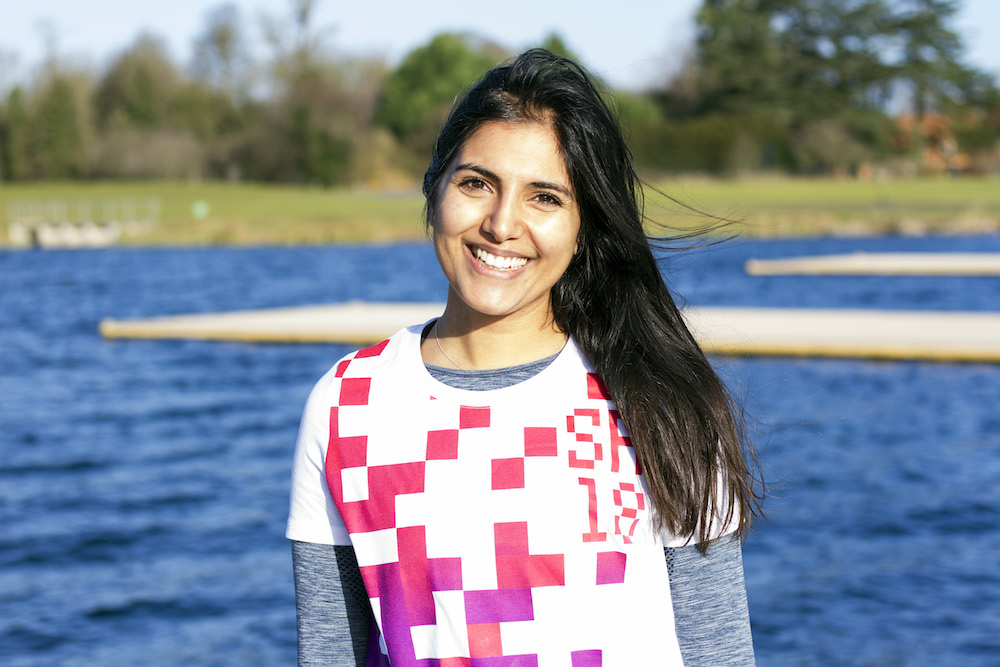
Amal
A tough pregnancy took its toll on Amal’s mental health. She struggled with pre-natal depression, a difficult labour resulted in a damaged pelvic floor, and she felt overwhelmed by breastfeeding. Amal wants to raise awareness of the trauma women can face before, during, and after childbirth.
The social narrative of women who haven’t had children tends not to include chatter about pelvic floors, incontinence and painful sex. When I asked my GP at eight weeks postpartum about what I now understand to be symptoms of pelvic floor dysfunction, I was told that it would eventually get better. The health visitor I saw immediately postpartum advised me to start doing ab crunches on day two, and I think this reflects the systematic lack of understanding about the physical sequelae of birth. The narrative needs to change.
I’m excited and nervous about the challenge! It’s going to be mentally and physically tough, but I’m sure there’ll be one person carrying the “positivity-baton” at all times!
To the mums out there I’d say it’s more common than you think to not feel consistently positive when you’re a new mum, and to have a physical injury post-birth. I would stress that it certainly isn’t your fault. If you find yourself in this position, book an appointment with your doctor. I didn’t do this early enough, and what’s to lose? Talk to others, meet up with other mums, and when you take some time for yourself, do it without guilt – you deserve it.
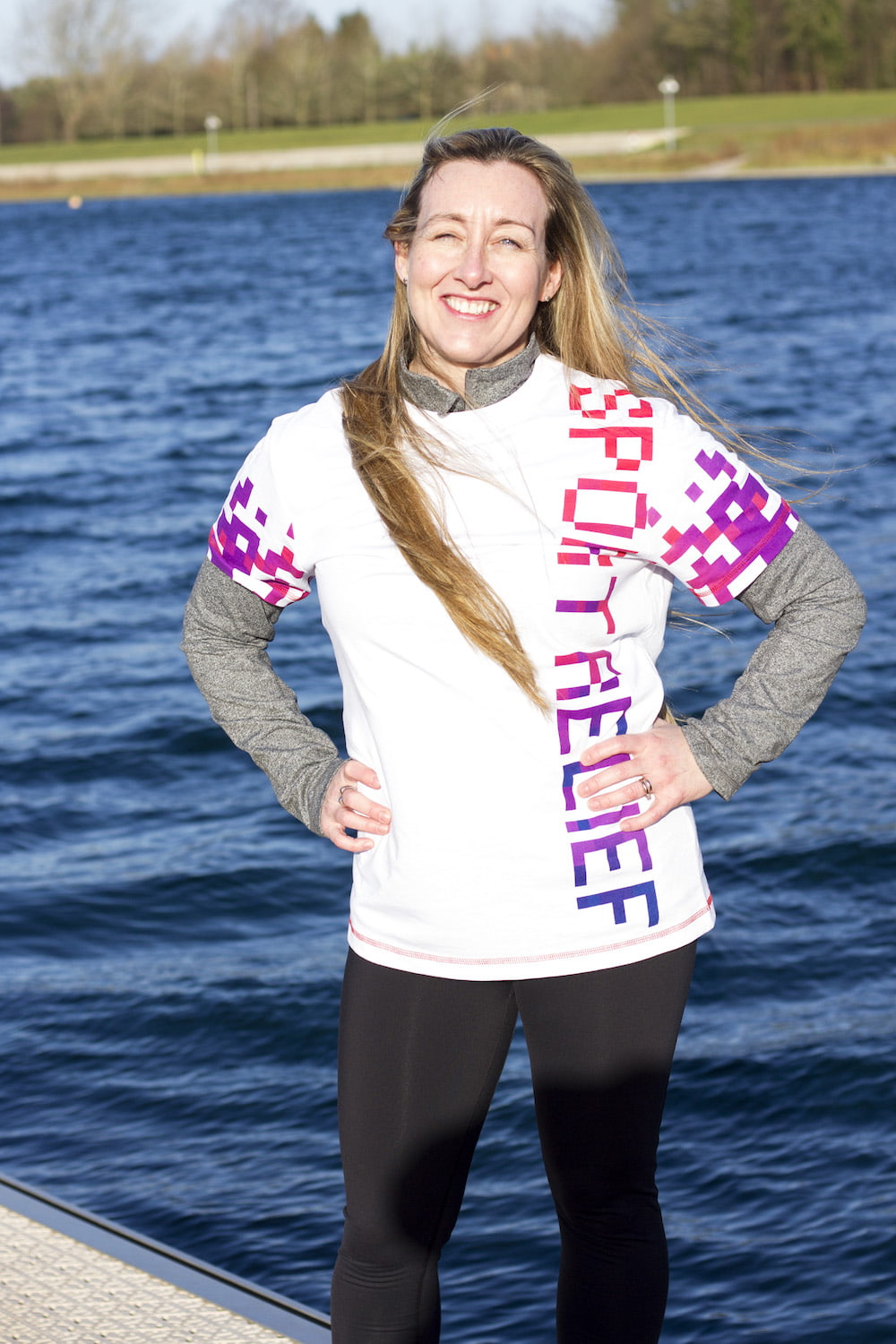
Leigh
Having had two rounds of IVF, which were both successful but unfortunately ended in a miscarriage with the first pregnancy, Leigh is concerned about the impact fertility treatment can have on maternal mental health. The challenge is an opportunity to prove to herself that she’s as capable and determined as she feels she’s become.
A lot of women will understand the burning desire to have a child – IVF can offer hope, but can also lead to disappointment. The euphoric high I felt after discovering the treatment had worked, was countered by the plummeting grief when I miscarried. However, I still felt physically and mentally strong which allowed me to try again and resulted in my beautiful son and daughter.
Ahead of the challenge, I think I’ve gone through every emotion possible. I’m not sure I’d be able to do this on my own, but having the girls and Alex with me means we support each other.
Infertility can still carry stigma – that having to resort to IVF is a “failure”. When I tell people that I had my twins by IVF, a lot of people look visibly uncomfortable. I want to tell them yes, look what science can do – I’m now a mum to two fantastic children who I might never have met if it hadn’t been for those amazing people in white coats. Let’s celebrate it, let’s talk about it more, lets share our hopes and disappointments!
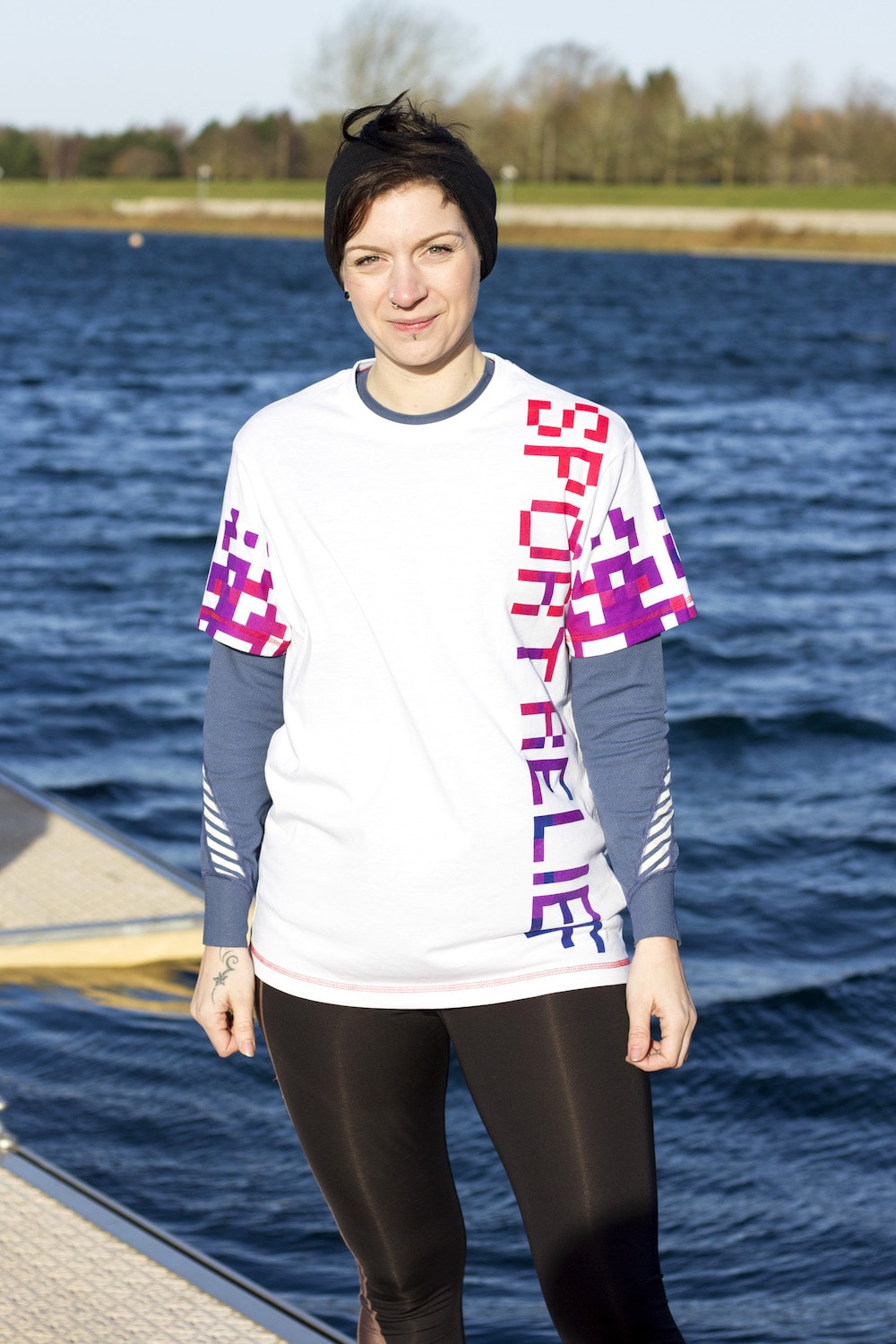
Jodi
When Jodi went into labour four weeks early, she experienced severe perinatal depression, believing she’d been given the wrong baby. Following a second pregnancy, her depression manifested in exercise bulimia. Jodi wants to help other mums by showing them that there is a light at the end of the tunnel.
When I became pregnant, I thought I was ready for all that pregnancy brought with it. I started out loving how my body was adapting and changing to support my growing child. But when I reached six months, I hit a speed bump – I was scared of how out of control I was.
Through the last few months, all I could do was keep breathing and reminding myself it was temporary to keep my baby safe and healthy. But it culminated in my son being born early due to my poor mental health.
I feel incredibly lucky to be able to reach out to mums who are feeling lost, scared, lonely, and confused – the list could go on. A lot of us feel programmed, biologically, to have babies. When becoming a mummy happens and you feel like you are “failing” it’s the most confusing time of our lives.
I want to tell those mums suffering in silence to reach out – tell your health visitor, tell your midwife, tell a friend, tell the postman! Start to normalise the feelings and have some comfort; allow help to come.
The challenge itself doesn’t scare me – I spent my whole life feeling like I was failing, but not any more. I’m going to finish, whatever they throw at me, however long it takes, for my boys and for anyone who thinks they “can’t”.
The Mother of All Challenges for Sport Relief will feature on ‘The One Show’ from 12–16 March. Visit sportsrelief.com to find out how you can support the mums.

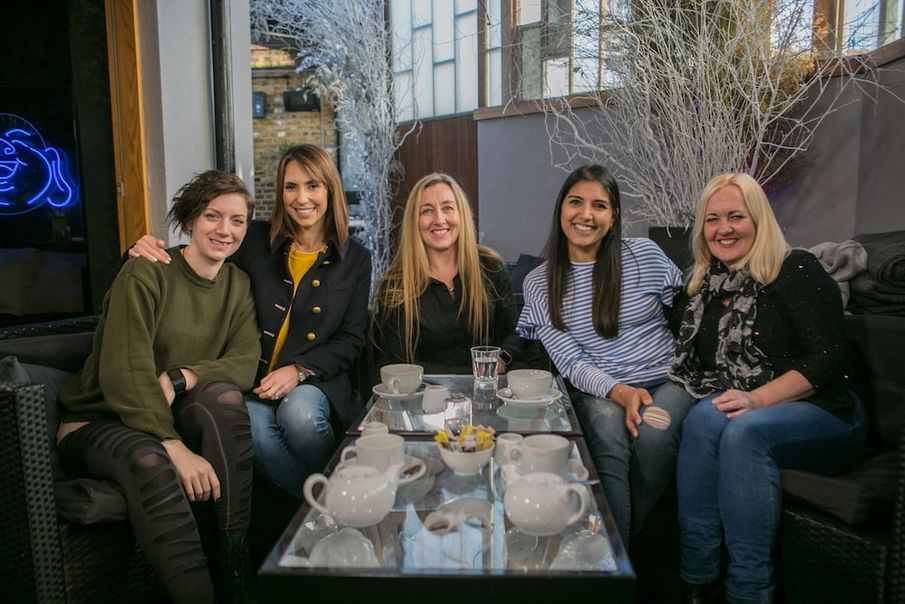
Comments